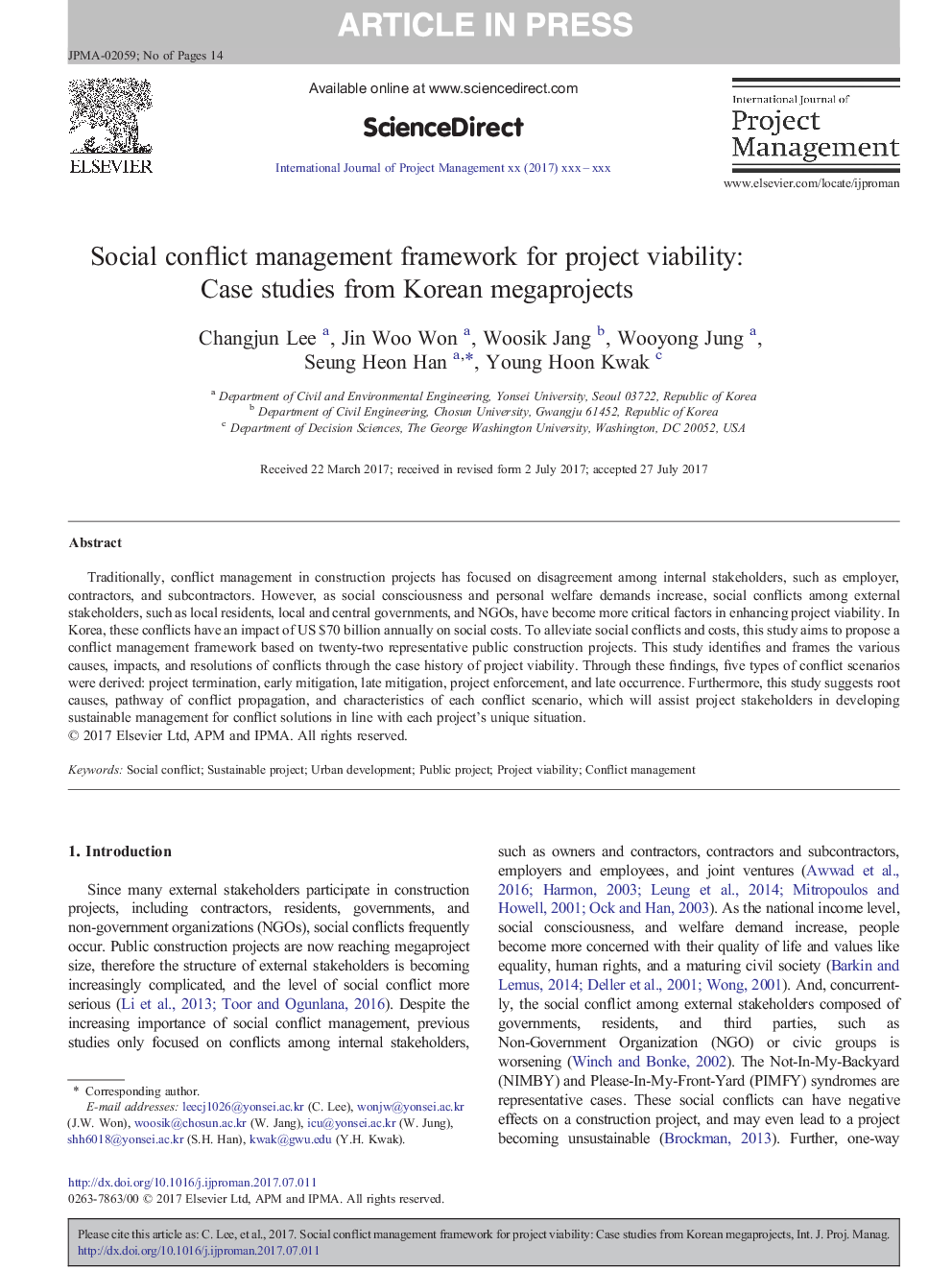| Article ID | Journal | Published Year | Pages | File Type |
|---|---|---|---|---|
| 6748118 | International Journal of Project Management | 2017 | 14 Pages |
Abstract
Traditionally, conflict management in construction projects has focused on disagreement among internal stakeholders, such as employer, contractors, and subcontractors. However, as social consciousness and personal welfare demands increase, social conflicts among external stakeholders, such as local residents, local and central governments, and NGOs, have become more critical factors in enhancing project viability. In Korea, these conflicts have an impact of US $70 billion annually on social costs. To alleviate social conflicts and costs, this study aims to propose a conflict management framework based on twenty-two representative public construction projects. This study identifies and frames the various causes, impacts, and resolutions of conflicts through the case history of project viability. Through these findings, five types of conflict scenarios were derived: project termination, early mitigation, late mitigation, project enforcement, and late occurrence. Furthermore, this study suggests root causes, pathway of conflict propagation, and characteristics of each conflict scenario, which will assist project stakeholders in developing sustainable management for conflict solutions in line with each project's unique situation.
Related Topics
Physical Sciences and Engineering
Engineering
Civil and Structural Engineering
Authors
Changjun Lee, Jin Woo Won, Woosik Jang, Wooyong Jung, Seung Heon Han, Young Hoon Kwak,
